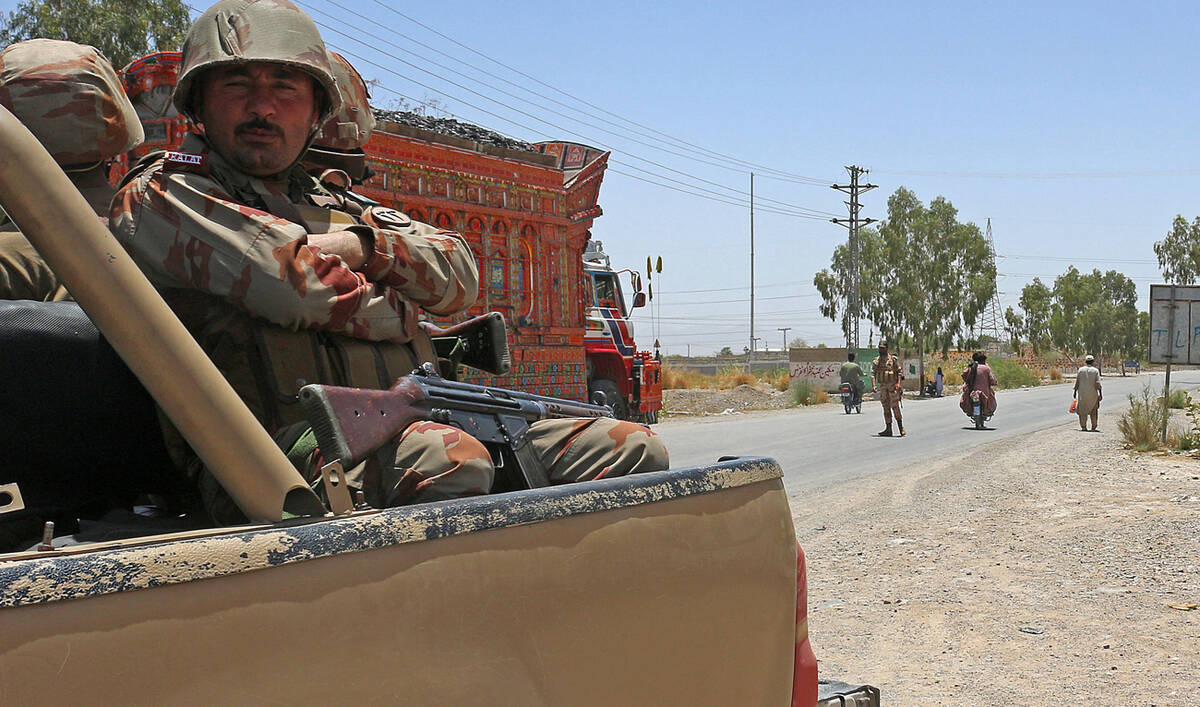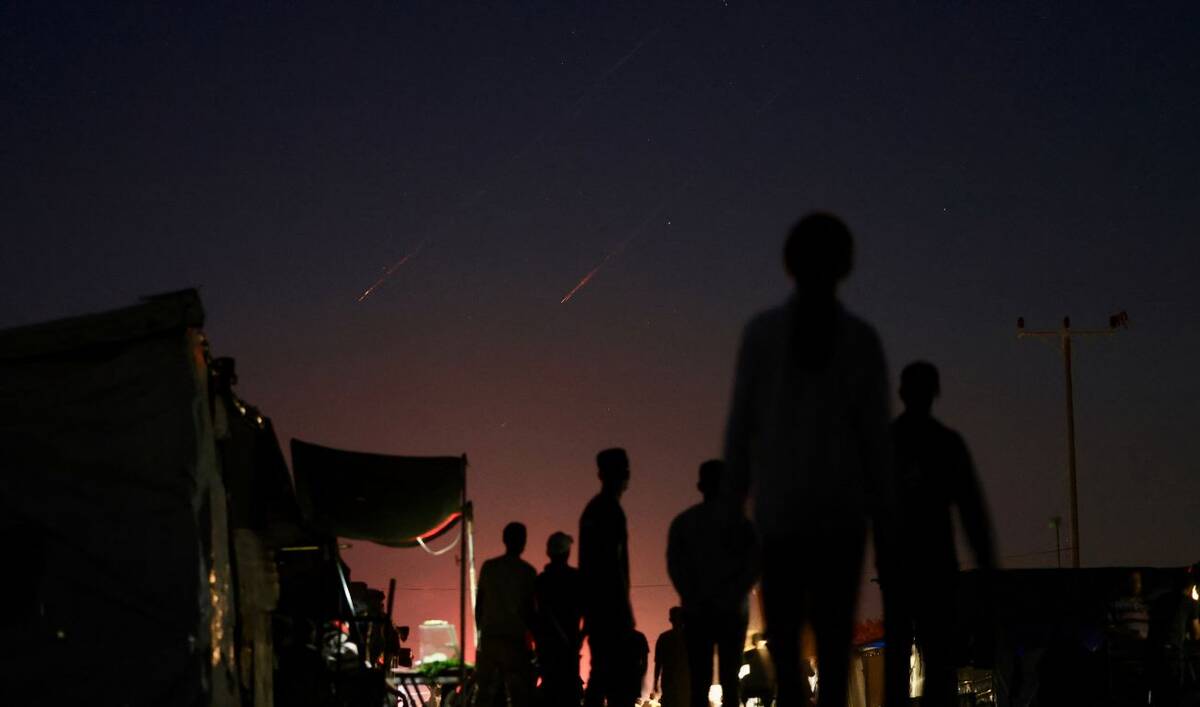KARACHI: The chief minister of PakistanŌĆÖs southwestern Balochistan province said on Wednesday six people, including four children, were killed in a militant attack on a school bus, with a government official saying the bus had been en route to an army-run school.
The attack took place in BalochistanŌĆÖs Khuzdar district. The bus was on its way to drop students off at a military school in the area, Yasir Iqbal, the administrator of Khuzdar district, told media.
ŌĆ£These coward terrorists attacked them [school bus] with a vehicle-borne IED and in that attack, 46 children were traveling on that bus, of which four children have been martyred and the rest are injured,ŌĆØ Balochistan Chief Minister Sarfraz Bugti told media.
ŌĆ£Firstly, we condemn this incident, we strongly condemn it. Children are innocent and they have nothing to do with wars.ŌĆØ
The Pakistan military blamed ŌĆ£Indian terror proxiesŌĆØ for being behind the attack.
Tensions between nuclear-armed neighbors Pakistan and India are high after they struck a ceasefire on May 10 following their most intense military confrontation in decades.
Both countries accuse the other of supporting militancy on each otherŌĆÖs soil ŌĆö a charge both capitals deny.

Security personnel guard along a street near the site of a school bus bombing in the Khuzdar district of Balochistan province on May 21, 2025. (AFP)
The latest military escalation, in which the two countries traded missiles, drones and artillery fire, was sparked after India accused Pakistan of supporting militants who attacked dozens of tourists in Indian-administered Kashmir on April 22, killing 26. Islamabad denies involvement.
ŌĆ£After having miserably failed in the battlefield, through these most heinous and cowardly such like acts [attacking school bus], Indian proxies have been unleashed to spread terror and unrest in Balochistan and Khyber Pakhtunkhawa,ŌĆØ the army said in a statement, referring to two Pakistani provinces.
The Indian foreign ministry has rejected the accusations in a statement, saying it condoles the loss of lives in such incidents while criticizing Pakistan for blaming New Delhi for IslamabadŌĆÖs own ŌĆ£failingsŌĆØ and ŌĆ£internal issues.ŌĆØ
There was no immediate claim of responsibility for the attack, but suspicion is likely to fall on separatist groups such as the Balochistan Liberation Army, which in March blew up a railway track and took passengers from a train hostage, killing 31.
Reacting to the incident, US Charg├® dŌĆÖAffaires Natalie Baker condemned ŌĆ£the brutal, unconscionable attack on a school bus,ŌĆØ saying the murder of children was beyond comprehension.
ŌĆ£We grieve with the families who lost loved ones, and our thoughts are with those recovering,ŌĆØ she added. ŌĆ£No child should ever fear going to school. We stand with those in Pakistan working to end this violence.ŌĆØ
UNICEF also expressed shock at the development.
ŌĆ£This devastating violence and needless suffering must end,ŌĆØ it said. ŌĆ£Enough is enough. Children are not, and must never be, the targets of violence.ŌĆØ
Southwestern Balochistan is PakistanŌĆÖs largest province by area, but smallest by population and most impoverished. The region of some 15 million people is home to key mining projects and a deep seaport that China is building but has been roiled by a decades-old insurgency.
ŌĆ£Targeting innocent children is a barbaric act, those responsible deserve no leniency,ŌĆØ Interior Minister Mohsin Naqvi said in a statement, describing the attack as a ŌĆ£vile conspiracy to destabilize the country.ŌĆØ
WednesdayŌĆÖs attack was reminiscent of one of the deadliest militant attacks in PakistanŌĆÖs history when over 130 children were killed in a military school in the northern city of Peshawar in 2014. That attack was claimed by the Pakistani Taliban group.
With inputs from Reuters

















